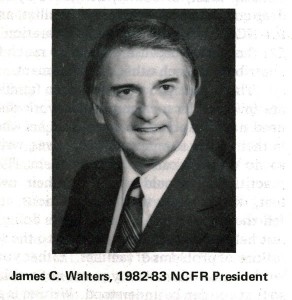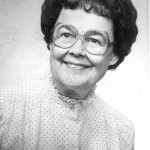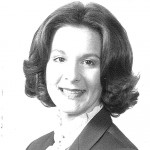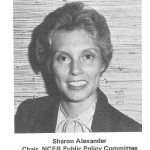Leadership in 1982–83

James Walters
¶ 1 Leave a comment on paragraph 1 0 James Walters, NCFR’s 40th President, served as first Extension Family Life Specialist in the Cooperative Extension Service. He was a professor and head of the department of Child and Family Development at the University of Georgia when he was elected NCFR’s President. He was born in 1925 in Denver, CO. His father and mother were in an automobile accident one month before his birth and his father was fatally injured. His mother took the family back to her hometown of Topeka, KS, where he was reared primarily by his mother’s sister. He graduated from high school and earned his bachelor’s degree at Washburn University in Topeka. He then went to the University of Iowa Child Welfare Research Station and earned his master’s degree in Child Welfare. He was first employed at Rutgers University and then went to Oklahoma State University (OK A&M) where he began his PhD work. He transferred to Florida State University to finish his doctorate and became a full professor and department head at the University of Alabama. He also taught at Oklahoma State University, Florida State University, and the University of Georgia, retiring in 1989. Walters published many scientific articles, a textbook, and was a reviewer for numerous scientific and professional journals. He was a two-term editor of NCFR’s Family Relations. He joined NCFR in 1957 and was active in many positions, including his presidential year. He and Ruth Jewson wrote NCFR’s 50th Anniversary History Book in 1986. Among his awards, he was most proud of the coveted University of Georgia Josiah Meigs Award for Excellence in Teaching and the NCFR Ernest Osborne Award for Outstanding Teaching. Jim was a favorite teacher and mentor to many students and was known for his sincerity, graciousness, and humor. Jim passed away on March 6, 2011, of complications from Alzheimer’s disease. He is survived by his wife, Lynda Henley Walters, a daughter, a son, a stepdaughter, and grandchildren. His first wife, Frances, and four siblings preceded him in death.
¶ 2 Leave a comment on paragraph 2 0 The following is an excerpt from Walters’s Presidential Address:
¶ 3 Leave a comment on paragraph 3 0 Most parents successfully avoid much communication with their children about their own or their children’s sexuality, and the sex in general communication of many parents is often indirect, veiled, exaggerated and inaccurate. Communication that is used to instill fear and guilt may have residual consequences that few parents would knowingly choose. Our best evidence suggests that parents who engender guilt have children who are the least prepared for sexual encounters. When high sex guilt women become sexually active they wait a year longer than low sex guilt women to use a reliable contraceptive. The development of sound judgment about responding sexually may be one of the best methods of contraception after all with far fewer serious consequences than fear and guilt combined. Fifty percent of youth in the U.S. who use no contraception following the onset of intercourse become pregnant within six months. The consequences of this one fact alone is worth remembering. The problems we face as a nation that relate to human sexuality are exacerbated by the fact that major institutions, and education have supported the belief that sexuality is too dangerous to examine publicly. The consequence of our timidity and ignorance is, simply, much human unhappiness that could be avoided if we had the courage to be rational.
¶ 4 Leave a comment on paragraph 4 0 Sharon Alexander, Chair of the Public Policy Committee, wrote a report in the newsletter on pertinent congressional bills. The International Youth Year, to be held in 1985, and a network in which the NCFR participated, entitled Research Resources for Children, Youth, and Families, formed to assist the House Select Committee on Children, Youth and Families.
Gallery
- Ruth Jewson
- Lynda Walters
- Sharon Alexander





Comments
0 Comments on the whole Page
Login to leave a comment on the whole Page
0 Comments on paragraph 1
Login to leave a comment on paragraph 1
0 Comments on paragraph 2
Login to leave a comment on paragraph 2
0 Comments on paragraph 3
Login to leave a comment on paragraph 3
0 Comments on paragraph 4
Login to leave a comment on paragraph 4